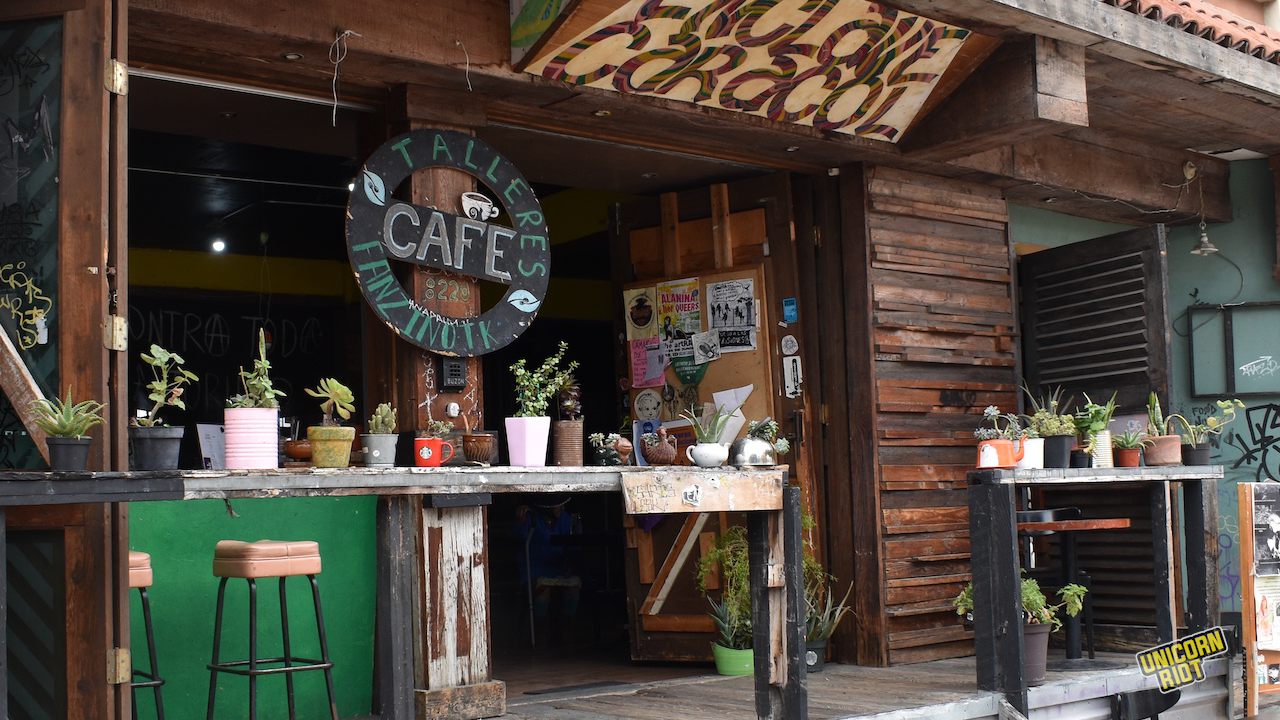Inside Enclave Rabia Caracol — An Anarchist Community Center and Cafe in Tijuana, Mexico
Tijuana, Mexico — In the heart of downtown Tijuana, less than a kilometer from the San Yisidro Port of Entry and blocks away from the most popular nightlife and tourist areas of the city, migrants rest on the stairs of a café while passersby lean on the bar, sipping what may be the best and cheapest espresso in the city.
The café, called Enclave Rabia Caracol, is run by a collective and organized around anarchist values — a commitment to non-hierarchical relationships, autonomy, mutual aid, and self-determination.
Enclave “was founded on anarchist principles” said Betania, a longtime volunteer and friend of the project. And it has “tried to reject any kind of authority or hierarchy. They’ve kept trying to maintain their anarchist principles and to defend themselves as an anarchist space.”
On a given day, the five story building (including basement and roof top rooms) houses a variety of projects and dozens of people pass through its open doors.“We have a café, we have a community kitchen where we prepare the free meals. We have a community bike shop in the basement and we have space for events, shows…theater,” explained Nat, a longtime organizer and collective member of Enclave. “We try to make the space available for the community to use as they please.”
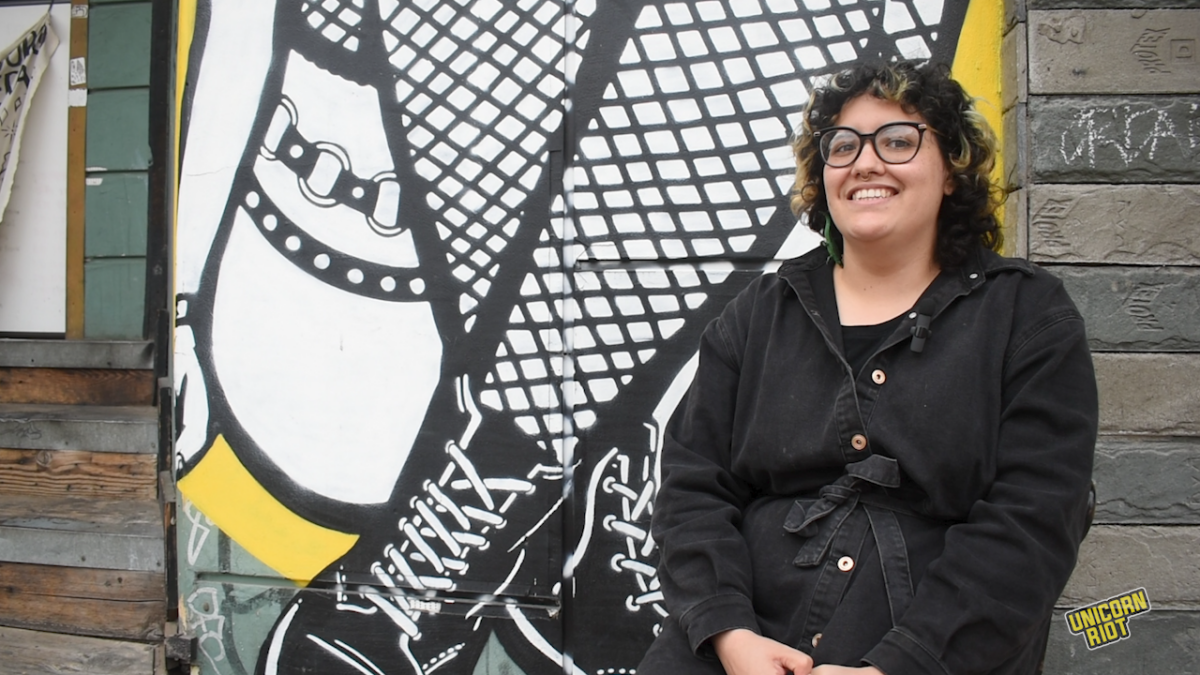
Due to aggressive U.S. border militarization policies Tijuana has become a landing point for migrants moving through Mexico and seeking to enter the U.S.; many of whom get stuck in Tijuana and are in desperate need of help. Since its inception (albeit in a slightly different form) in the fall of 2015, Enclave has offered support to migrants and others living on the streets of Tijuana.
“The people who come for our free services are mostly people who have been deported from the United States,” explained Nat, “which make up a large chunk of the homeless population in Tijuana. Also some migrants who are stuck in Tijuana due to the ‘Remain in Mexico’ policies. Those are most of the people in need who come here to use the restroom, to use the internet, to drink water, to eat.”
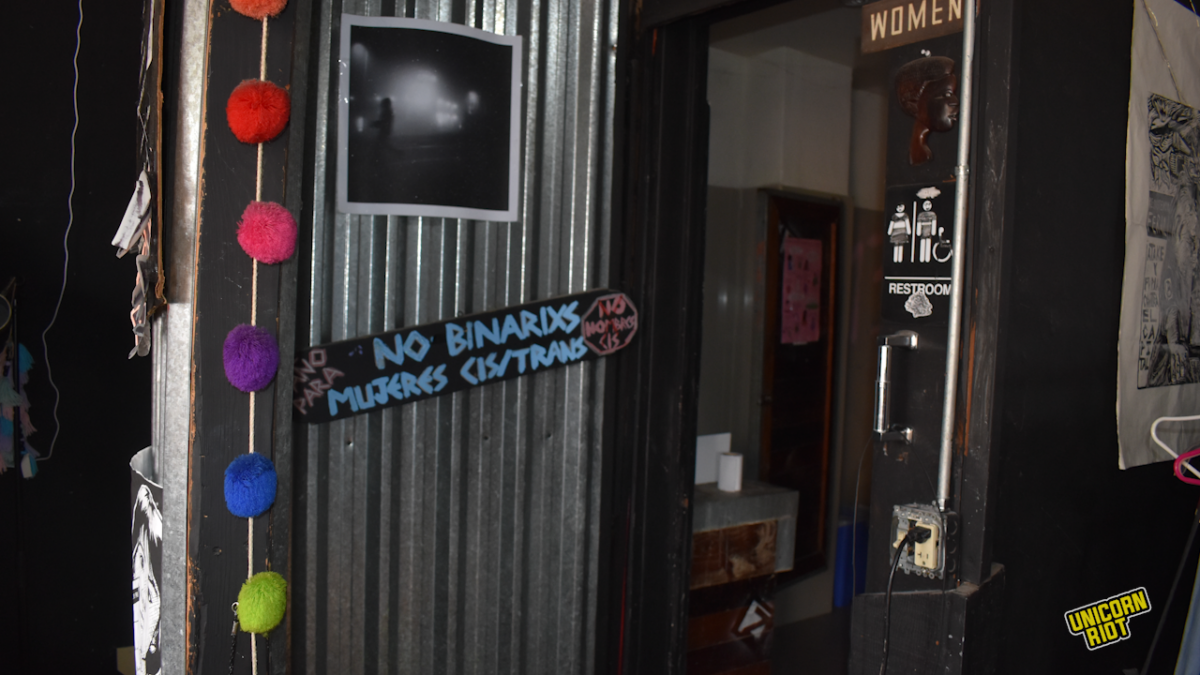
But Enclave isn’t just a resource center for migrants and others in need — it is also a space for creativity, experimentation, and exchange of radical political ideas. It hosts drag shows, reading groups, lectures, film screenings, and workshops on topics outside the political mainstream. At such events, those who come to the space primarily for resources often stay to engage with those who come for the politics or to enjoy the safe space.
“The people that come to the shows and that organize events are, I would say, mostly punks and feminists and people from the LGBT community that have found also a safe space here where they know that here they will be respected no matter what,” said Nat.
Enclave provides its services without the support of governments or large foundations. It gets by largely on donations and fundraisers run by the same small group of people that work every day to keep the doors open.“It is a project that has many expenses,” explained Nat, mostly rent. “Because we do pay rent, it’s not a squat.”
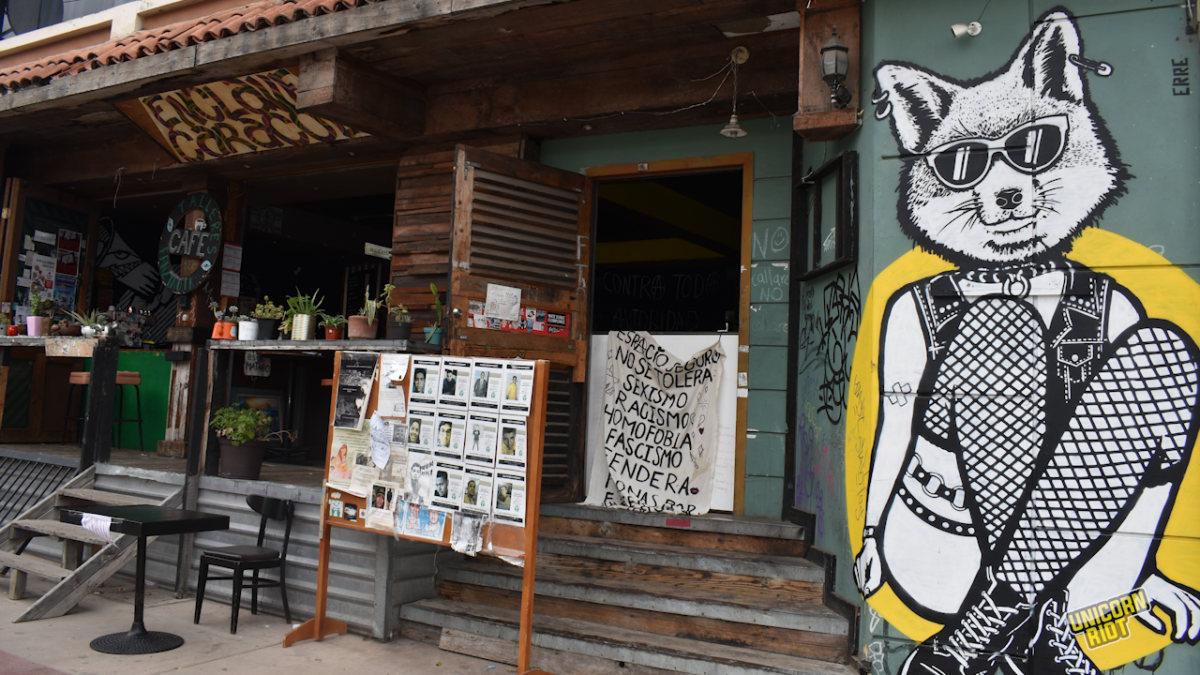
Enclave provides free food and drinking water to those who drop in throughout the week. Drinking water, in Tijuana, is purchased in 5-gallon jugs and contributes to the overhead of running a resource center.
“Also our electricity bill has been crazy these past months,” said Nat. “None of our projects really generate that much revenue at all, so we do rely on donations and volunteer work to keep it running.”Enclave emerged out of Food Not Bombs, an international network of projects committed to serving free food to anyone who wants it, sometime between 2015 and 2017. In the fall of 2015, Food Not Bombs Tijuana, or Comida No Bombas as it’s called there, started renting a small commercial space directly north of the current location of Enclave in downtown Tijuana. The space was small, but it hosted events, lectures and reading groups while also serving as a hub for free food distribution. It wasn’t yet called Enclave, but the project existed there in embryonic form.
In late 2016, the group of people organized around Food Not Bombs migrated to the larger building Enclave now occupies. After some initial confusion and, of course, conflict, Enclave decidedly emerged in early 2017.
In 2017 and 2018, Enclave was shaped and reshaped by the pressure of the wave of migrant caravans that hit Tijuana. Chris, one of Enclave’s founders, explained that the space hosted press conferences and provided other minor support to early caravans of 50 or so people long before the collective migration practice became a major news item in the U.S.
Those early caravans were more like pilgrimages, explained Chris, called Via Crucis (Stations of the Cross), where groups of migrants and those engaged in spiritual movements for social justice traveled together in a largely symbolic gesture of opposition to oppressive border policies. In 2018, those caravans grew to thousands and Enclave became a major hub for hospitality, particularly for the queer and transgender contingent of the caravans.“First there was a group of 500 that came up and that was the first ‘big’ caravan of 2018,” explained Chris. “They had trouble presenting [for asylum], so they set up camp at Chapparal, which is the port of entry closest to Enclave. So we organized with them to set up a makeshift camp right at the border.”
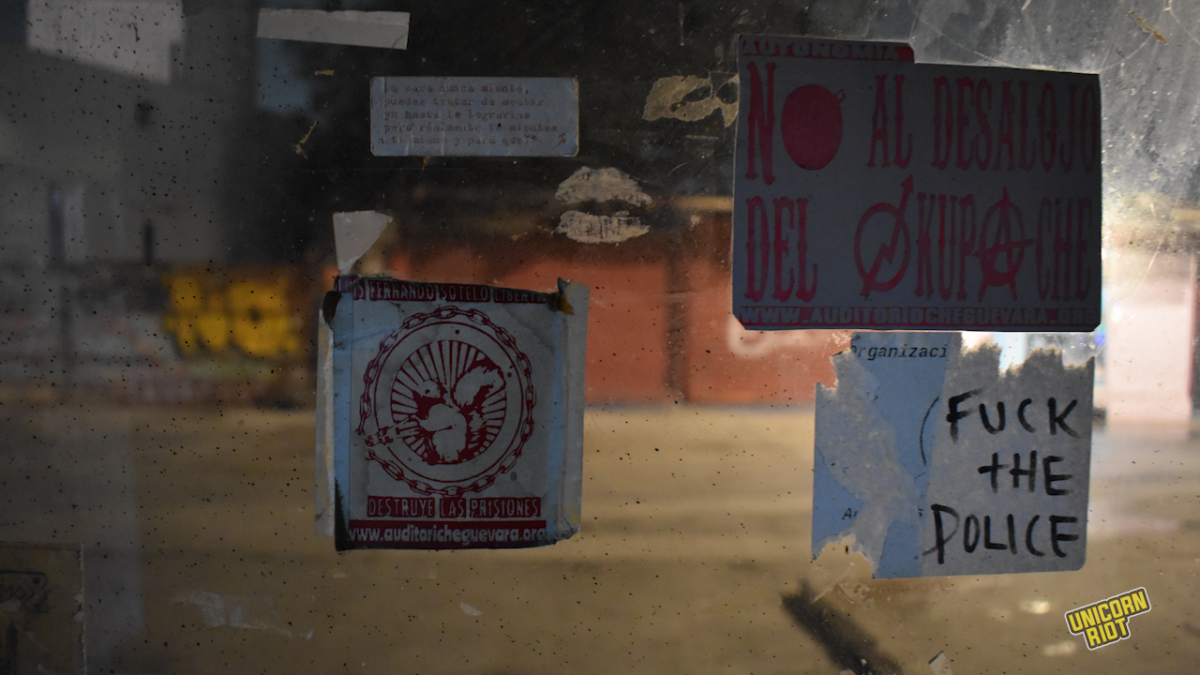
That encampment lasted a week before all the asylum seekers in the caravan had either been processed by U.S. Customs and Border Protection or had moved on to other places in Tijuana.
“That was the first big community need that Enclave was super instrumental in, but also a lot of other organizations showed up and started linking up together at that time,” said Chris.
From there, the caravans continued to grow and so did Enclave’s efforts to support them. “The caravan after that I believe was 5,000,” explained Chris, “so that was very different. And what preceded that caravan was an LGBT caravan contingent, which was 80-90 people.”
Enclave hosted the LGBT contingent for several days or a week before the group moved on to other shelter. That was Enclave’s first experience offering shelter to a large group of people in serious need, and it was a learning experience. “It was tough, I think, for everybody,” said Chris. “A lot of people with a lot of different needs that we weren’t able to meet.”
After that, larger nonprofits stepped in and began supporting LGBT migrants in Tijuana while smaller community groups, including groups organized by and for migrants themselves, continued to struggle to alleviate the enormous amount of suffering created by U.S. border policy.
The caravans acted as a catalyst for radical and community organizations to emerge in Tijuana, many of which began at Enclave before growing and moving to their own spaces. “What came out of Enclave, I think, most of all is the other things that have sprung up,” said Chris. “Every collective or organization that got started because people were convening there and then moved out to do different things in the world. It’s really inspiring to me.”
Nearly ten years since its initial inception in a small alley space in downtown Tijuana, Enclave continues to host events, serve food to those in need, and incubate radical projects and ideas. In a borderland made dangerous and violent by U.S. policy, it offers respite from the quotidian violence of life as well as a vision for a world unfettered by borders.
“It’s been important to us to create this safe space,” said Nat. “It’s been hard to do. We just want to have, given that the rest of society is so violent to us in different ways, we really do want this to be a safe space where anyone can come and take a break, not only from the sun and hunger but also from the violence that we live with everyday.”
Follow us on X (aka Twitter), Facebook, YouTube, Vimeo, Instagram, Mastodon, Threads, BlueSky and Patreon.
Please consider a tax-deductible donation to help sustain our horizontally-organized, non-profit media organization:

